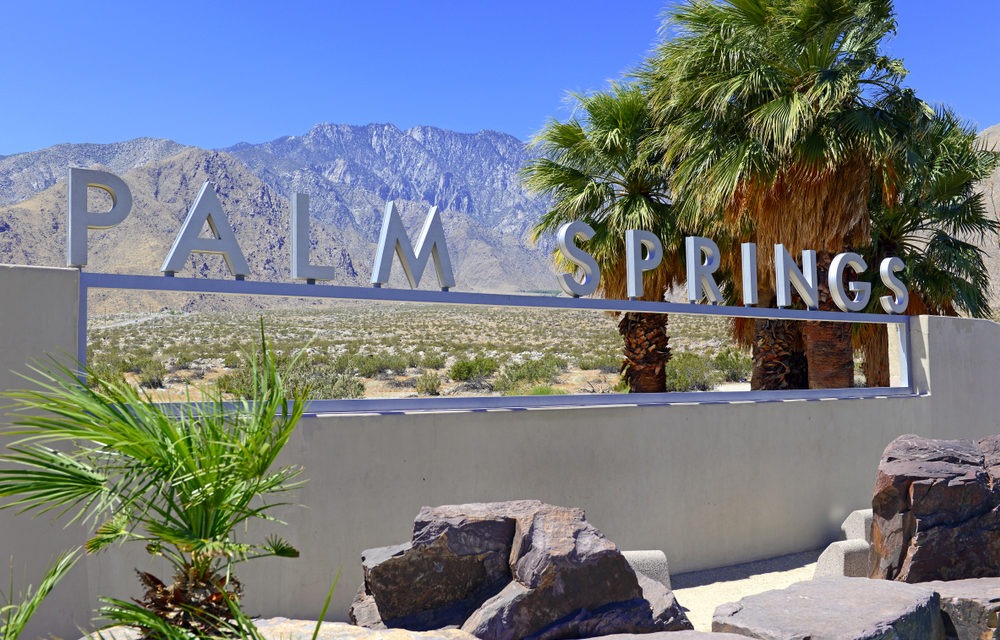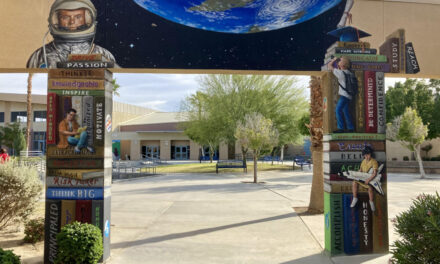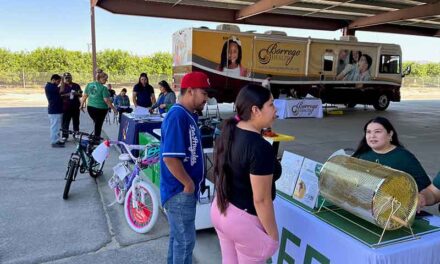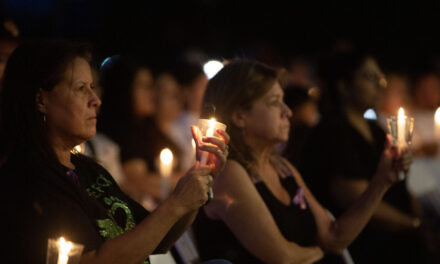PALM SPRINGS – Mayor Geoff Kors last week announced the formation of a Palm Springs Business Transition and Re-Entry Task Force, believed to be the first of its kind in the Coachella Valley. Some thought it was designed to mastermind a re-opening plan for a financially sucker-punched international tourist destination.
That is not the mission of the taskforce. Its goal is to lay the groundwork for a re-opening that will attract people to Palm Spring once the state eases precautions related to the COVID-19 pandemic.
The panel is comprised of a diverse group of business, tourism and hospitality leaders from throughout Palm Springs. Its goal is to plan a safe and successful recovery
The Re-entry Task Force includes an impressive list of some of the brightest minds in tourism and business organizations as well as community leaders. You will find the full list of names here.
To help the community better understand the role of the task force and next steps, a squeezed-for-time Kors graciously agreed to a Q&A with Uken Report. Check out he has to say.
Uken Report (UR): Mayor Kors, you announced last week a Re-Entry Task Force. You have said that the goal of the group is to prepare for the reopening of the economy. What exactly does that mean and what are you doing?
Kors: The first meeting of the Re-Entry Task Force was on Tuesday, April 28th and we had a terrific meeting. What we did with creating a task force, and I’ve been working with Mayor pro tem Christy Holstege, as we’re the two liaisons for business retention and economic development. What we did was reach out to the very excellent groups we have who work in the tourism and business community, who have members, and ask them each to appoint someone of their choosing to be part of it.
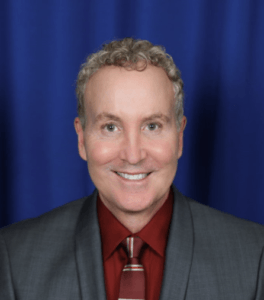
Mayor Geoff Kors
We brought together a really good group of folks. For the city, we have in addition to myself and Mayor (Pro Tem Christy) Holstege, we also have the city manager and our economic development director and we have Chairman (Jeff) Grubbe from the (Agua Caliente Band of Cahuilla Indians) Tribe. We also have the heads of the Greater Palm Springs Convention & Visitors Bureau, Palm Springs Convention Center and Tourism Bureau, the Chamber and many other organizations.
The first meeting was really focused on two things. Primarily one was about the marketing plans that are underway from both the Convention and Visitors Bureau, which covers the entire Coachella Valley and then our own Palm Springs Bureau of Tourism. They both did presentations, which we will be posting on the website, laying out the work they’ve been doing to market to locals about restaurants that are open for takeout and delivery, businesses where you can buy gift cards or that are shipping online to support our local businesses during the stay-at-home orders.
A lot of it focused on their phased approach to marketing Palm Springs once it’s safe to have tourists back. We all believe that there‘ll be a lot more drive-market tourism than tourism from international destinations — or potentially even further — such as flights from the East Coast. But that also means that people who are in the Southwest of the United States are less likely to be going far away on their vacations and our destination may be a perfect place for them. We talked about all the hiking trails and the more open space (we have) than a vacation to an urban center that many people will be looking for. (We) could see people coming to Palm Springs as opposed to taking other types of trips.
That was our main focus of this first meeting, but we also talked about other issues that have come up. For example, we know that restaurants and bars will likely have physical distance or reduced-occupancy requirements by the state when they’re first allowed to open. Well, are there ways we could extend their patios? Is there potential to extend them into parking lots or are there some streets where we might be able to do things like that? We brainstormed those ideas.
We talked about issues that many of them are facing, such as the ability to get enough disinfectant and hand sanitizer so that when they open, they have the supplies. Because it’s important for them, it’s important for their customers and it’s important for visitors to know that we’re doing everything we can to make Palm Springs and Coachella Valley a safe environment for people to come to.
Other issues that were raised for future meetings include how we’re going to be advocating for business programs at the state and federal level. I shared what we have already been doing, including conversations I’ve had over just the last few days with Assembly Member Chad Mayes and Congressman Raul Ruiz and State Controller Betty Yee about financial issues, budget issues, issues with commercial mortgages that really impact our hotels and other businesses that own their own building, not being delayed during the time of the shutdown.
It was a great first meeting. A lot of the groups are going to reach out now to their members to share the information and then get information back. And that was the reason we picked organizations because, for example, as it turned out, three of the organizations ended up representing small local restaurants, and some of them are bigger than others.
But everything from Blackbook, which is a smaller restaurant bar in Arenas, to Las Casuelas Terraza, which is larger, mostly outdoor patio Mexican restaurant that’s been here for four generations, to Spencer’s by the the Tennis Club. Although they’re representing different organizations, that was an example of the kind of input we were hoping for, knowing that they’ll then reach out to their membership to share what we’re learning.
UR: That sounds like a great first meeting, Geoff. When is your next meeting?
Kors: The next meeting will be next Tuesday, (May 5) and then next Thursday (May 7) Mayor Pro Tem Holstege and I will report out to Council on what we’ve done, what we’ve learned and what the other issues are that we’re going to continue to be working on.
UR: Mayor, in the press release that went out, you spoke of the importance of the city businesses, tourism and hospitality to work together. Is that a new concept? I mean, haven’t all of these entities worked collaboratively in the past?
Kors: It is really clear in Palm Springs, and I think we see this throughout the Valley, that the level of support that businesses provide for each other and cooperation and collaboration through organizations like Palm Springs Bureau of Tourism or the Greater Palm Springs Convention and Visitors Bureau is tremendous.
I’m the liaison to almost all the organizations, and when someone new comes in within a month, they’re always saying, “I’ve never been in a location, a destination where people help each other this much.” ~ Mayor Geoff Kors
In Palm Springs, we’ve had organizations that are district-based such as the Arenas district merchants or Main Street, which deals with downtown and uptown in Palm Springs. We have the Chamber, which is mostly small businesses of all kinds. We have the Palm Springs Hospitality Association, and different people are involved with organizations. Not all of the leaders of those organizations know what’s happening at some of the other meetings necessarily because it’s not always that relevant to them.
In this case, I thought it was really important to make sure that everyone’s hearing from each other because we’re in such a unique time. In normal times, they’d reach out to each other if there’s a question or if they want to share something. But in this case, I wantd to make sure they were all connected.
That was really the goal here. We felt it important that our other government partner here, Agua Caliente Band of Cahuilla Indians was participating and having Chairman (Jeff) Grubbe agree to be the representatives was really wonderful because they offer so many attractions through their participation. We have the casino. We have the upcoming cultural center and spa. We have two golf courses, their golf courses; and we’re having that input.
We have the film festival, the biggest event that the city is a partner in. We also have Spencer’s Restaurant and our one Tennis Club. We have the small hotel organization and the big hotel organization. They meet separately, the big and small hotels, even though they communicate, having them both on the same call, and hearing from restaurants, hearing from attractions, is key. We have a board member of the Palm Springs Museum on. All that is just, I think, so important in this extraordinary circumstance that we’re in.
UR: Mayor Kors, when do you envision the Palm Springs economy start to reopen and what does that look like?
Kors: The Palm Springs economy will be required to follow the state of California’s rules. Local governments can do more precautions but not less. And with a few limited exceptions, we are following what the state and county has set out. And if the county is going to rely on the state moving forward, then we’ll be following the state guidelines.
Gov. Newsom said it will be a phased approach. The next phase, which he hasn’t given a date for, will be schools, childcare and small retail, so we’re waiting for that. Things like curbside delivery for small businesses maybe will be done sooner than even the opening of the stores themselves given there’s no contact there. And that’s something we’ve reached out to the state and county to see, whether deliveries could be allowed now or sooner as an option because many businesses have asked. We’ve reached out when we get calls, and we always forward those to the county, and when appropriate, the state for answers.
The next phase will be broader, and the last phase, according to the governor, will be large events, concerts, things along those lines where you could have thousands of people close together.
The governor has made it clear that decisions will be made on the medical and scientific facts, and he’s not going to just pick a date. But he did say this is going to start in a matter of weeks, so we anticipate sometime in May, maybe even the first half of May, we’ll see some easing of the precautions. And at that point, we’ll also have data to see what happened in some of the states that have lifted their precautions in a major way and the impact that has had on a potential surge in the virus. That information will also, I assume, be looked at by the governor and the state’s Department of Public Health where they have such great expertise.
UR: Mayor, you talked about the large events being the last phase. When you and I talked in March, you spoke about having more events in the fall like Coachella and Stagecoach and other events. Are you still hopeful that those events will materialize?
Kors: I’m always hopeful.
UR: There’s a but coming.
Kors: We have to really wait and see.
UR: OK.
Kors: What the governor indicated was he wants to see either enough testing to know that there’s immunity in a large percentage of the population or a therapeutic treatment, whether that’s a vaccine or a way to reduce the impacts of people who get the virus. We don’t know at this point if that’s going to happen before he is going to allow those types of big events.
There will be nothing better than to see one of those medical breakthroughs happen as soon as possible. That is what we all are hoping for on a daily basis, so we have to wait and see. Same for Palm Springs Pride, which is in early November. It’s an enormous event and has a huge economic impact in Palm Springs. Everyone is waiting, holding off on spending a lot of money on things that they wouldn’t be able to undo until we see how things go. We are always hopeful, but we want to be realistic that it may not be possible.
UR: Mayor, I wanted to just circle back when you were talking about deliveries earlier, just a quick follow-up. What kind of deliveries are you’re talking about?
Kors: There are two things that are happening now. What essential businesses such as grocery stores and restaurants can do is curbside pickup or at-home delivery. Retail businesses can only do at-home delivery or shipping.
One of the things that we’ve been asked is when some precautions are lifted, could that include curbside delivery/pickup at retail stores. If someone would order something online or by the phone, when you got to the store, you text the store, you already have paid for it, you put it out on the table in front —or back — if it’s a parking lot, the way BevMo! is currently operating in Palm Springs. The person picks it up. Someone comes down and wipes off the table, and then they do that one customer at a time by appointment.
UR: As I’m sure you know; Rancho Mirage is offering its restaurants up to $8,000 each to help them stay open. Is there any chance that Palm Springs can do something similar? Does the City of Palm Springs have any way to help small business in that same fashion?
Kors: For right now, Palm Springs has been working with our business community providing a huge amount of information on our website. We’ve made our economic development staff available for any business that needs so to connect them with resources. We did a very well-attended and useful webinar on the federal loans and potential grants that were available. We are doing another one in partnership with the Chamber of Commerce and the Small Business Development Center on Tuesday, May 5th at 11 o’clock, in order to provide more information and answer questions.
As far as financial support, we have discussed what might be possible, and right now we are focused on the budget implications for the city.
Some cities in the Valley —Rancho Mirage, Palm Desert have very large reserves. That is wonderful and I congratulate them on having those. They’re newer cities. We have successfully built our reserves. I think we had budgeted $15 to $16 million in reserves just a few years ago to over $33 million in just a few years, which is more than 20% of our general fund budget. The recommendations from auditors, when we asked, was between 10% and 20% in reserves. We exceeded that, and we also cut away $16 to $17 million in retention reserves over the last three years. We’ve really worked to increase those numbers for our city.
Of course, the impacts of this pandemic were unexpected and unprecedented. It’s not just the economic downturn … We are looking at likely almost $30 million of lost revenue just in the month of March, April, May, and June of this year, which will take most of our reserves without other actions, and could be more than that in the next fiscal year starting July 1st.
We are the city that has tourism as the main piece of our economy. Transit occupancy tax on hotels, the vacation rentals is the No. 1 source of revenue for our city and that is going to be close to zero over normally the busiest time in Palm Springs and the Coachella Valley of the year. Property taxes, which we’re not even bringing into this because that hit, if there is one, will come a year and a half from now, and sales taxes are next. And, of course, sales tax has been dramatically reduced.
We’re looking at our cash flow. We’re looking at what we need to do. We’ve put in a hiring freeze. We’re looking at major restructuring in government and changes in the services we’re able to provide. All that being said, as we look at all of that, we’ll see what resources we have and how we can best spend them. We put a significant amount of money into tourism, millions of dollars, and whether some of that should be used for this is a discussion that we can have — and will have.
And any discussion whether it’s on budget cuts or using money for other purposes or changes in the rules related to the virus, you always see those at a public Council meeting discussed with public input. Even though some of these decisions can be made without the typical public process, in Palm Springs, we want to have that transparency and that input from our residents and businesses before we make any major decisions.
UR: Do you have anything that you would like to add.
Kors: As you know, early on, Palm Springs was considered ground zero hotspot — (that’s) the term the head of Public Health for Riverside County used early on because of the number of cases and deaths we had were so disproportionate. But once we issued the stay-at-home rules, we started seeing people really take it to heart. Our residents, our businesses, everyone was so cooperative.
The police chief has reported that it’s never easy to do these things, but here in Palm Springs it was not that hard. … If anyone or any person or business is in violation, (police) share what the rules are with them and they’ve never had an instance where they’ve had to cite someone because there was a repeat offender. I think it’s a testament to our residents and businesses when you see how much flatter the curve has gotten here than it has countywide or statewide, and we need to keep that going, while at the same time looking at what we can ease safely.
But I really want to shout out to all the people who have stepped up, all the people who have volunteered to help their neighbors. All the workers in health care, in grocery, delivery, the post person and our public safety and first responders have done such a critical job. City staff, with so many working from home, have really kept everything going and done a terrific job as well.
I’m really fortunate to work with four other great Council members who are all working on issues, working with their constituents, and helping businesses. We need to keep doing everything we can to get through this as quickly and safely as possible because we all want to see our friends and family, we all want to go out to our favorite restaurants and shopping in our favorite stores and see our life start to return to normal.
Image Sources
- Geoff Kors: Geoff Kors
- Palm Springs: Shutterstock

